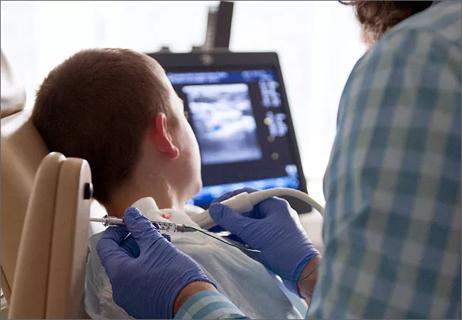An expert’s take on evolving challenges, treatments and responsibilities through early adulthood
Podcast content: This podcast is available to listen to online.
Listen to podcast online (https://www.buzzsprout.com/2243576/18462245)
“Aspects of epilepsy change from when a patient goes from being a newborn to an infant to a toddler to a young child, in terms of how seizures evolve and how we respond to those seizures with medicines,” says Deepak Lachhwani, MBBS, MD, a pediatric epileptologist with Cleveland Clinic’s Epilepsy Center.
Advertisement
Cleveland Clinic is a non-profit academic medical center. Advertising on our site helps support our mission. We do not endorse non-Cleveland Clinic products or services. Policy
“And then as a young child becomes a teenager and as their brain and body mature,” he continues, “there are more medicines that are easily available for us. Most antiseizure medicines are approved initially for adult populations, so we have a larger variety of options as a teenager becomes a young adult and then a more mature adult. Of course, there are other aspects of their health that may change as well, such as potential cardiovascular morbidities, sleep-related comorbidities, psychiatric comorbidities. These are all aspects of adult medicine that are different from what a child or an adolescent might be experiencing. We must be mindful of those aspects as we think about treating young patients as they grow older during the course of their epilepsy.”
Specific ways of being mindful of those aspects are the focus of the latest episode of Cleveland Clinic’s Neuro Pathways podcast, which features Dr. Lachhwani as the guest expert. In the 31-minute episode, he addresses the following topics, among others:
Click the podcast player above to listen to the episode now or read on for an edited excerpt of its transcript. Check out more Neuro Pathways episodes at clevelandclinic.org/neuropodcast or wherever you get your podcasts.
Advertisement
This activity has been approved for AMA PRA Category 1 Credit™ and ANCC contact hours. After listening to the podcast, you can claim your credit here.
Glen Stevens, DO, PhD: How do you foster the transition from the care of a pediatric epileptologist to an adult epileptologist?
Deepak Lachhwani, MBBS, MD: With a lot of preparation. In most cases, from the time a patient is in their midteens, we start educating them about the fact that they will start driving, they will become independent. We start engaging them in the conversations in a way so that they can actually participate, first with awareness of what their diagnosis is and then with awareness of which medicines are they on. Then, as time goes on, in their late teen years, we start engaging about who their doctor will be and how to access them. We try to explain these things and assess what their level of understanding is to enable them to make a transition to independent decision-making, appointment-making, seeking out insurance details, etc. This involves a lot of talking with them during their mid- to late teen years.
Because our center is a continuum of pediatric and adult providers, we are lucky in that we don’t have to say you’ll suddenly not be able to enter the doors once you’re 18 or older. But we do try to explain to patients that, at some point beyond 18, they will establish care with one of our adult epilepsy providers. And it is a partnership of decision-making, initially between the family and a midteen, and then between the family and a teenager or young adult. As time goes on, it ultimately involves letting the young adult take charge of not only their medications but their appointments and their choice of an adult provider.
Advertisement
Advertisement

Case-control study yields evidence of epigenetic aging in pediatric-onset MS

Leaders of the Pediatric Cancer Committee discuss new accreditation

6 objective measures to assess pain and evaluate progress

Relapse rates were lower with oral or infusion therapy after initial injectable DMT

Evidence, clinical considerations, and why more research is still needed

Multidisciplinary team coordinates, adds efficiencies to care

An expert talks through the benefits, limits and unresolved questions of an evolving technology

Planning continues with critical, patient-focused input from nursing teams